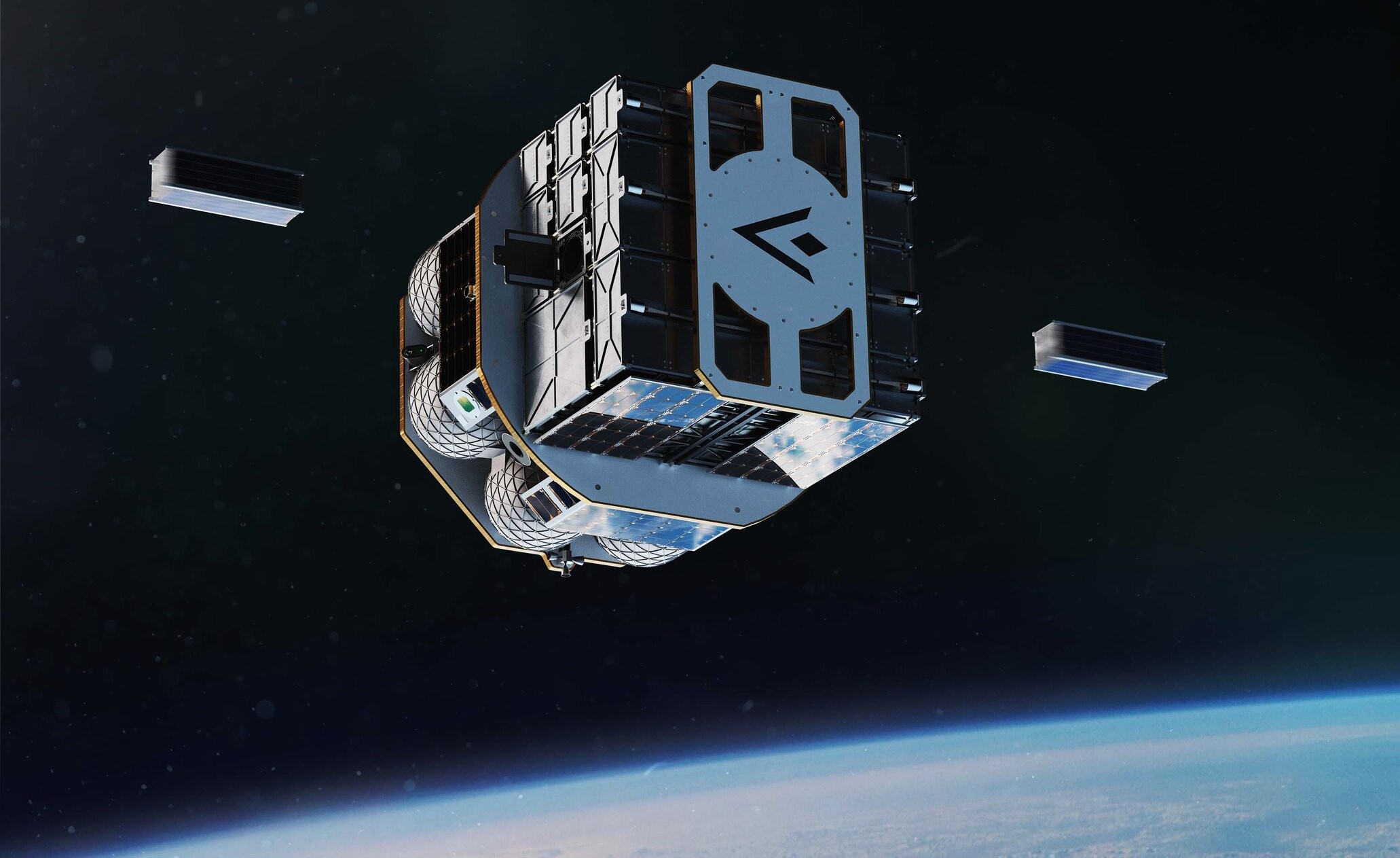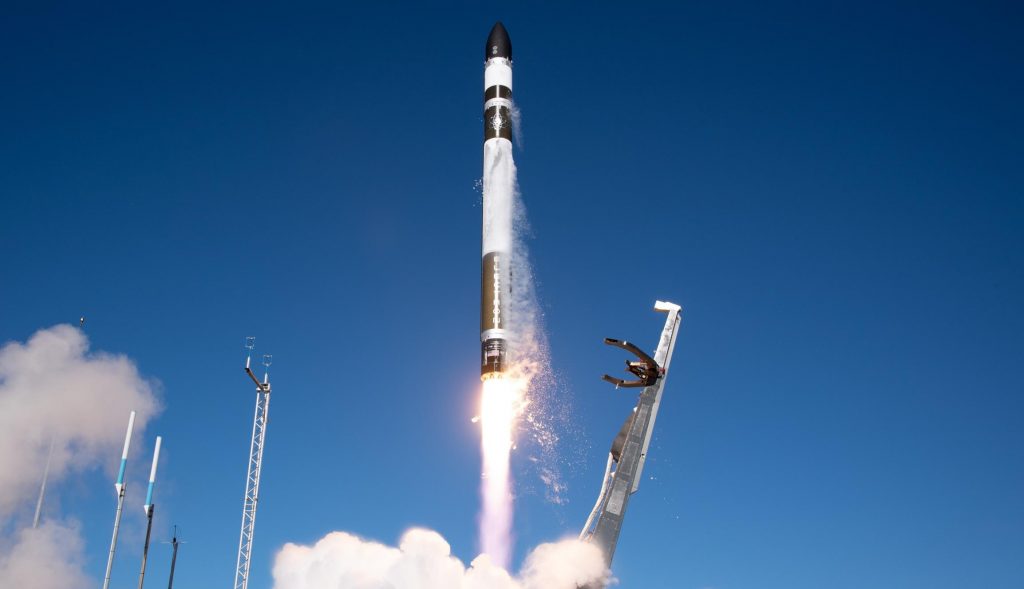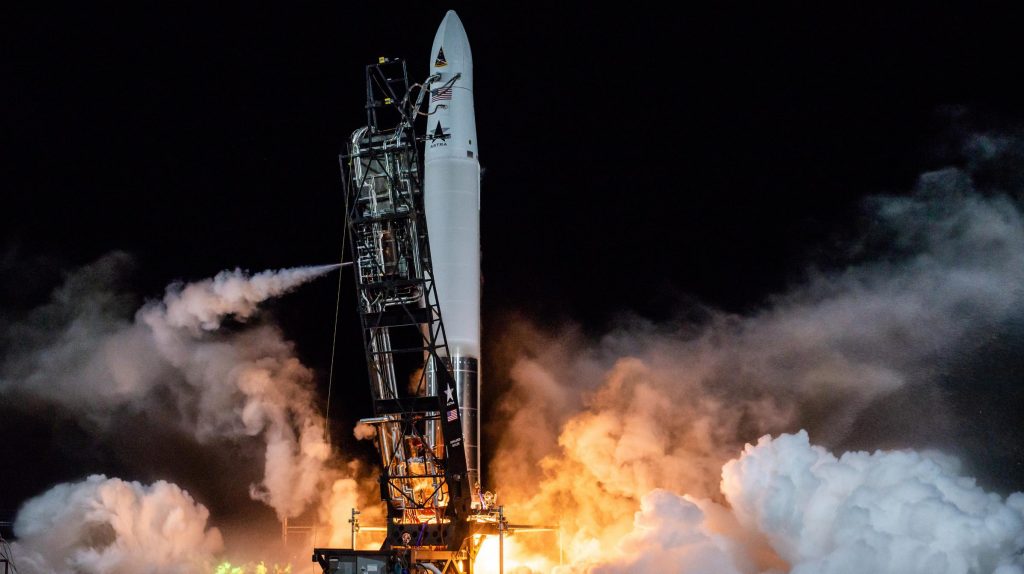

News
SpaceX wins launch contracts for three more Launcher space tugs
Startup ‘Launcher Space’ has chosen SpaceX to launch at least three more ‘Orbiter’ space tugs, meaning that the company will have a payload on every dedicated SpaceX rideshare launch planned from Q4 2022 to the end of 2023.
Following SpaceX’s third successful dedicated rideshare launch in January 2022, the company has another two missions – Transporter-4 and -5 – scheduled in the first half of the year. In October 2021, Launcher announced its Orbiter spacecraft program and plans to manifest the first vehicle on a SpaceX rideshare mission – likely Transporter-6 – scheduled to launch no earlier than (NET) October 2022.
Announced in the summer of 2019, SpaceX’s Smallsat Rideshare Program has offered one of the easiest and most affordable tickets to space for two and a half years. Following a handful of Starlink rideshare missions in 2020, SpaceX kicked off dedicated Transporter launches in January 2021 and has since delivered more than 320 customer satellites and payloads to orbit. By treating each Transporter mission a bit like public transit and also opening the door for third-party launch servicers, SpaceX has been able to somewhat simplify the tedious process of organizing large-scale rideshare missions.
Most importantly, thanks to the unprecedented affordability of its Falcon 9 rocket, SpaceX has allowed rideshare customers to reap a great deal of the benefits by charging just $1M per 200-kilogram (440 lb) ‘slot’ and a flat $5,000 for each additional kilogram. To anyone unfamiliar with the cost of spaceflight, that might seem obscene, but it’s extraordinarily affordable and far cheaper than every advertised alternative. Astra Space, the cheapest dedicated smallsat launch provider, sells a Rocket 3 vehicle capable of launching about 50 kilograms (110 lb) to a similar orbit for ~$3.5M – equivalent to $70,000 per kilogram. Rocket 3 has only completed one successful launch, however. Rocket Lab’s more accessible Electron rocket costs at least $7.5M for ~200 kilograms to sun-synchronous orbit (SSO) – a price of $37,500/kg.


Nonetheless, the single most significant drawback of rideshares – a one-size-fits-all orbit – remains. Short of a much more complex, expensive trajectory that would require Falcon 9’s upper stage to reignite several times, every payload launched on Transporter missions ends up in the same initial orbit. To solve that problem, a not insignificant number of companies have been formed in recent years to develop competitive orbital transfer vehicles. In theory, propulsive space tugs could potentially give rideshare payloads the best of both worlds – ultra-cheap launch costs and, within reason, delivery to a specific orbit of choice.
Launcher’s Orbiter is perhaps the most promising of the lot. Scheduled to debut no earlier than (NET) October 2022, Orbiter will use pressure-fed 3D-printed thrusters fed by ethane and nitrous oxide propellant stored in 3D-printed tanks. The company has already begun printing and hot-fire testing multiple thrusters, has received the first set of Orbiter avionics and solar panels, and seemingly remains very confident about the schedule for that spacecraft’s launch debut.
Additionally, Launcher is actually publicizing pricing for the stage. Bought outright, each Orbiter will cost about $400,000. Using its full 400 kg (880 lb) payload margin, a Falcon 9 launch with Orbiter – enabling precise orbital targeting – would cost a prospective customer about $3.5M – less than $9,000/kg. For a 200 kg (440 lb) payload, a Falcon 9 + Orbiter launch might cost less than $7,000/kg (~$2.5M). For Orbiter rideshare missions, Launcher will charge between $8,000 and $25,000 per kilogram – multiple times cheaper than alternatives at the low end and still competitive at the high end.
Other companies like Spaceflight Industries, D-Orbit, Momentus, Exolaunch, and more are also developing – or already flight-testing – their own space tugs, though most are being cryptic about their prices and capabilities.
News
Tesla Semis to get 18 new Megachargers at this PepsiCo plant
PepsiCo is set to add more Tesla Semi Megachargers, this time at a facility in North Carolina.

Tesla partner PepsiCo is set to build new Semi charging stations at one of its manufacturing sites, as revealed in new permitting plans shared this week.
On Friday, Tesla charging station scout MarcoRP shared plans on X for 18 Semi Megacharging stalls at PepsiCo’s facility in Charlotte, North Carolina, coming as the latest update plans for the company’s increasingly electrified fleet. The stalls are set to be built side by side, along with three Tesla Megapack grid-scale battery systems.
The plans also note the faster charging speeds for the chargers, which can charge the Class 8 Semi at speeds of up to 1MW. Tesla says that the speed can charge the Semi back to roughly 70 percent in around 30 minutes.
You can see the site plans for the PepsiCo North Carolina Megacharger below.

Credit: PepsiCo (via MarcoRPi1 on X)

Credit: PepsiCo (via MarcoRPi1 on X)
READ MORE ON THE TESLA SEMI: Tesla to build Semi Megacharger station in Southern California
PepsiCo’s Tesla Semi fleet, other Megachargers, and initial tests and deliveries
PepsiCo was the first external customer to take delivery of Tesla’s Semis back in 2023, starting with just an initial order of 15. Since then, the company has continued to expand the fleet, recently taking delivery of an additional 50 units in California. The PepsiCo fleet was up to around 86 units as of last year, according to statements from Semi Senior Manager Dan Priestley.
Additionally, the company has similar Megachargers at its facilities in Modesto, Sacramento, and Fresno, California, and Tesla also submitted plans for approval to build 12 new Megacharging stalls in Los Angeles County.
Over the past couple of years, Tesla has also been delivering the electric Class 8 units to a number of other companies for pilot programs, and Priestley shared some results from PepsiCo’s initial Semi tests last year. Notably, the executive spoke with a handful of PepsiCo workers who said they really liked the Semi and wouldn’t plan on going back to diesel trucks.
The company is also nearing completion of a higher-volume Semi plant at its Gigafactory in Nevada, which is expected to eventually have an annual production capacity of 50,000 Semi units.
Tesla executive teases plan to further electrify supply chain
News
Tesla sales soar in Norway with new Model Y leading the charge
Tesla recorded a 54% year-over-year jump in new vehicle registrations in June.

Tesla is seeing strong momentum in Norway, with sales of the new Model Y helping the company maintain dominance in one of the world’s most electric vehicle-friendly markets.
Model Y upgrades and consumer preferences
According to the Norwegian Road Federation (OFV), Tesla recorded a 54% year-over-year jump in new vehicle registrations in June. The Model Y led the charge, posting a 115% increase compared to the same period last year. Tesla Norway’s growth was even more notable in May, with sales surging a whopping 213%, as noted in a CNBC report.
Christina Bu, secretary general of the Norwegian EV Association (NEVA), stated that Tesla’s strong market performance was partly due to the updated Model Y, which is really just a good car, period.
“I think it just has to do with the fact that they deliver a car which has quite a lot of value for money and is what Norwegians need. What Norwegians need, a large luggage space, all wheel drive, and a tow hitch, high ground clearance as well. In addition, quite good digital solutions which people have gotten used to, and also a charging network,” she said.
Tesla in Europe
Tesla’s success in Norway is supported by long-standing government incentives for EV adoption, including exemptions from VAT, road toll discounts, and access to bus lanes. Public and home charging infrastructure is also widely available, making the EV ownership experience in the country very convenient.
Tesla’s performance in Europe is still a mixed bag, with markets like Germany and France still seeing declines in recent months. In areas such as Norway, Spain, and Portugal, however, Tesla’s new car registrations are rising. Spain’s sales rose 61% and Portugal’s sales rose 7% last month. This suggests that regional demand may be stabilizing or rebounding in pockets of Europe.
News
Tesla to open first India experience center in Mumbai on July 15
The event is scheduled for July 15 at the Bandra Kurla Complex, a premier business district in Mumbai.

Tesla is officially entering India with the opening of its first showroom and experience center in Mumbai next week. The event is scheduled for July 15 at the Bandra Kurla Complex, a premier business district in Mumbai.
Tesla imports to India signal an early-stage market entry strategy
According to Indian customs data, Tesla has imported approximately $1 million worth of vehicles, charging equipment, and merchandise into the country between January and June. The shipments include six Model Y comprised of five standard variants valued at $32,500 each and one long-range model valued at $46,000. Several Superchargers and related accessories were also imported into the country, as noted in a Yahoo Finance report.
These vehicles are expected to serve as display models and test units as Tesla gauges interest and navigates India’s high import duties, which hover around 70% on fully built vehicles. Despite the significant tariffs in the country, Tesla has opted to begin its India expansion with imported cars.
An invitation to the Tesla India launch event has been making the rounds online. As could be seen in the document, Tesla noted that July 15 would be the launch of Tesla in India through the opening of a Tesla experience centre at Bandra Kurla Complex in Mumbai.
Tesla India’s hiring and expansion efforts are underway
Tesla has filled a number of key roles from the 30+ positions it advertised earlier this year. Recent hires include store managers, service executives, and sales staff, while ongoing recruitment is focused on supply chain engineers and vehicle operators to support the company’s Autopilot program.
Indian officials have been open about their intention to encourage Tesla to establish a manufacturing hub in the country. Tesla does seem open to the idea, at least, with reports last year hinting that Elon Musk was set to visit the country to discuss or even potentially announce a domestic project. The trip, however, was ultimately canceled.
-

 Elon Musk2 weeks ago
Elon Musk2 weeks agoTesla investors will be shocked by Jim Cramer’s latest assessment
-

 Elon Musk2 days ago
Elon Musk2 days agoxAI launches Grok 4 with new $300/month SuperGrok Heavy subscription
-

 Elon Musk4 days ago
Elon Musk4 days agoElon Musk confirms Grok 4 launch on July 9 with livestream event
-

 News1 week ago
News1 week agoTesla Model 3 ranks as the safest new car in Europe for 2025, per Euro NCAP tests
-

 Elon Musk2 weeks ago
Elon Musk2 weeks agoA Tesla just delivered itself to a customer autonomously, Elon Musk confirms
-

 Elon Musk1 week ago
Elon Musk1 week agoxAI’s Memphis data center receives air permit despite community criticism
-

 News2 weeks ago
News2 weeks agoXiaomi CEO congratulates Tesla on first FSD delivery: “We have to continue learning!”
-

 News2 weeks ago
News2 weeks agoTesla sees explosive sales growth in UK, Spain, and Netherlands in June

















